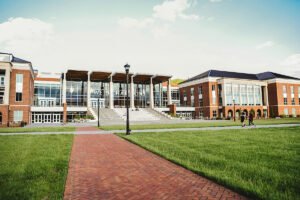
December 1, 2017; University World News
As Karen McGregor writes in University World News, Nancy Cantor, chancellor at Rutgers University-Newark in New Jersey, is “recognized globally as an advocate for the public mission of universities as ‘anchor institutions’ that collaborate with partners from across the economy to fulfill the promise of higher education as an engine of innovation and social mobility.” In October, Cantor spoke on this theme at an international leadership gathering in Stellenbosch, South Africa, held in partnership with the US-based Kresge Foundation.
In her talk, Cantor emphasized the contradictory nature of economic development in her home city of Newark: “On the one hand, there is systemic…poverty, racism, discrimination and disinvestment that has gone on for decades, while on the other hand there is enormous growth.”
In that context, Cantor said that the path forward for the university is to pursue a public mission, the “anchor institution potential as we call it” to “both generate equitable economic prosperity and growth, and leverage the diverse talent around us to build a more equitable future.”
At NPQ, we wrote about the anchor institution movement this past October, when we covered the winding down of past efforts at Syracuse University, a school where Cantor was president for nine years prior to coming to Newark. While Syracuse University has dialed down its anchor mission work, in the past two years, more than 450 chancellors, led by the national organization Campus Compact, have signed a document that calls on their universities to “embrace our responsibilities as place-based institutions.” The idea of pursing an anchor institution mission was also a central theme of this fall’s Coalition of Urban and Metropolitan Universities (CUMU) conference, as this summary makes clear.
Sign up for our free newsletters
Subscribe to NPQ's newsletters to have our top stories delivered directly to your inbox.
By signing up, you agree to our privacy policy and terms of use, and to receive messages from NPQ and our partners.
In short, despite hiccups and missteps, the idea of a university having an anchor mission has become popular. But Cantor cautioned that it is not enough for a university to declare itself to be an anchor institution. It has to change core processes and act like one.
Acting like an anchor institution, Cantor said, involves moving “from an exclusion mindset about what universities are, a selective mindset, to an inclusive mindset.” For Cantor, this means moving beyond meritocracy, where students with high grades and test scores are admitted and later graduate. Or, as Cantor put it, “Universities take an input that is already made, hope they do not mess it up, and then throw it out as output that we have so-called educated. I’m giving you the extreme version.” Instead, Cantor added, “We have to transition to what John Dewey called ‘cultivators of talent.’ Education is about cultivating, not about taking something already made.”
Universities also need to pursue diversity and inclusion as “core to our mission of excellence,” Cantor said. As an example, Cantor rhetorically asked, “How,” in a city like Newark, “do you address a criminal justice system of mass incarceration without fully reaping the insights of a diverse group of talented leaders and citizens who grapple with that on the ground every day?”
As McGregor notes, Cantor and Earl Lewis, president of the Andrew W. Mellon Foundation, are editing a series of books titled Our Compelling Interests, which seeks to outline “the ways in which inclusivity, prosperity, and the very strength of democracy are enhanced by diversity.”
Cantor added that university leaders often think of diversity as a concept to be “sold” to the public. But actually, Cantor argued, “It is more about messaging towards ourselves. We have to buy back fully. And in doing that we are saying that we will become more inclusive of more talent, and that we will become more anchored in place—which does not mean we are parochial; it means we are more aware of the world around us, of who is around us, of who we are.”—Steve Dubb










